Achieve nothing. Kind of like jumbo shrimp.
As I stretched out for my run the other morning, I began to read an article in the Buddhist publication Tricycle on the spiritual pitfalls of multi-tasking.
Tricycle is an excellent quarterly filled with wonderful writings from wise thinkers on such topics as “nothingness” and “meditation” and “enlightenment.”
Turning to stretch my other leg, I noticed that this month’s issue of Success magazine was also sitting on the counter.
I love Success. It’s stuffed with dynamic articles on “business” and “leadership” and “wealth” from leaders and teachers like Sarah Blakely, Jack Canfield and John Maxwell. Like Tricycle, it’s one of the few publications that I read from cover to cover every month.
Strange combination of magazines, isn’t it?
When I look in my library, I see a similar cacophony: a significant collection of books on theology and on Eastern thought; an equally impressive mix of business-related titles written by the likes of Richard Branson, Malcolm Gladwell and Warren Buffet.
Weird.
Maybe.
As Westerners, we are programed for success. Here in the Northeast, we might even say that we are driven for success. And yet, as fellow journeyers along the path, we search to understand the ultimate as well.
The question is: How do you strive to achieve your goals and at the same time stay true to your heart? How do you pay the bills and accumulate the resources to have the freedom you want, and not lose sight of what is truly important? How do you achieve and still stay sane?
Finding the balance is the key, I guess. Although that sounds so trite. And seems next to impossible. Not to mention the fact that “finding” seems to require the “achievement” of something.
It’s important to have goals. It’s necessary to have money. You need to meet your responsibilities. You want to be able to enjoy the opportunities that life presents to you.
And yet, at the end of the day, the person with the most toys doesn’t win.
Darren Hardy, once the publisher of Success, tells the story of visiting a family friend who had accumulated a “staggering fortune” who now lay dying from cancer. As Hardy was leaving, the man called him back to the beside and grabbed his arm. “Don’t miss the point like I did,” he told Hardy. “I wish I’d spent as much time and energy accumulating relationships as I had houses. I wish I had invested my heart as aggressively as I did my money. Only now do I understand true wealth, and none of it appears on a balance sheet.”
When I first started in law practice, the standard to achieve was 1800 billable hours a year. For young professionals starting out today, it is not unusual to hear of expectations of 2000 billable hours and more.
And yet at the end of the path, no one is going to wish they had billed more time.
Achieving. And not achieving. Being.
Jack Kornfield writes, “What matters most is how we live. This is why it is so difficult and so important to ask this question of ourselves: ‘am I living my path fully, do I live without regret?’ so that I can say on whatever day is the end of my life, “Yes, I have lived my path with heart.”
“The quality of your action depends on the quality of your being,” writes Thich Nhat Hanh. He says,
“Look at the tree in the front yard. The tree doesn’t seem to be doing anything. It stands there vigorous, fresh and beautiful, and everyone profits from it. That’s the miracle of being. If a tree were less than a tree, all of us would be in trouble. But if a tree is just a real tree, then there’s hope and joy. That’s why if you can be yourself, that is already action. Action is based on non-action; action is being.”
Oh, by the way, while running on the elliptical, I finished that article in the Buddhist review on the spiritual dangers of multi-tasking. Achieving nothing.


